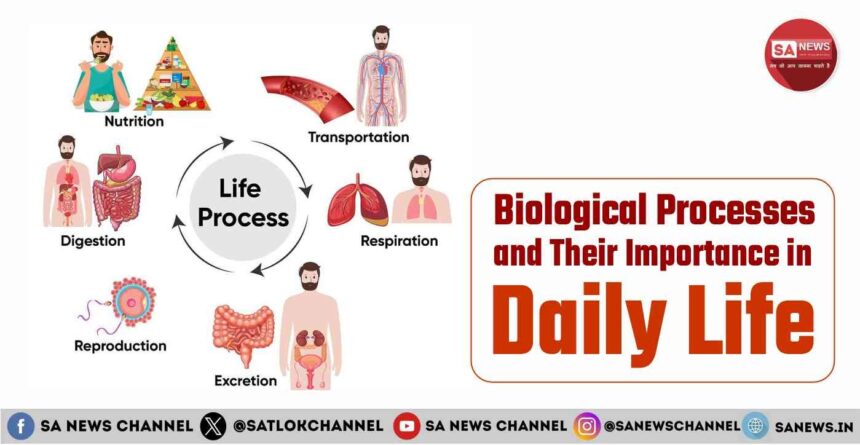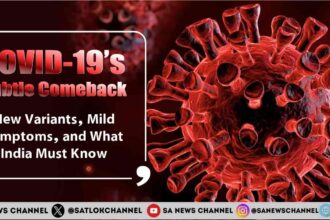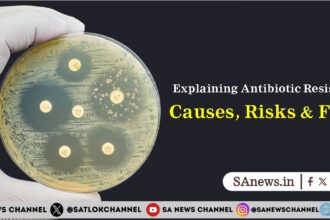Biology is all around us. From the food we eat to the way we breathe, sleep, grow, and even think—all of it involves biological processes. These are the natural activities that happen in living organisms to keep them alive and functioning. Whether it’s a plant absorbing sunlight or your body digesting lunch, these processes are always at work.
- What Are Biological Processes?
- Key Types of Biological Processes
- 1. Cellular Respiration
- 2. Photosynthesis
- 3. Metabolism
- 4. Homeostasis
- 5. Digestion
- 6. Reproduction
- 7. Growth and Development
- 8. Immune Response
- 9. Excretion
- Why Biological Processes Matter in Daily Life
- Breathing and Energy
- Eating and Digestion
- Staying Healthy
- Exercising
- Healing and Growth
- Sleep and Brain Function
- Mood and Emotions
- Real-Life Examples of Biological Processes
- The Role of Biology in Modern Life
- Conclusion
- FAQs
In this blog post, we’ll explore what biological processes are, the key types you should know, and why they are important in our everyday lives. Don’t worry—we’ll keep everything simple and easy to understand, using real-life examples you can relate to. By the end, you’ll have a much better appreciation for how your body, and life in general, really works.
What Are Biological Processes?
A biological process is any series of steps carried out by living organisms to perform a life function. These processes occur at every level of life—from single-celled bacteria to complex organisms like humans.
Biological processes happen all the time, often without us even noticing. They ensure that living things stay alive, grow, and respond to their environment. From breathing to healing a cut, everything is guided by these processes.
Why Are Biological Processes Important?
Biological processes help:
- Maintain the body’s balance (homeostasis)
- Convert food into usable energy
- Grow and repair tissues
- Fight off infections and heal injuries
- Reproduce and ensure species survival
- Respond to external changes like temperature and light
- Store and transmit genetic information
In simple terms, biological processes are essential for life. Without them, cells couldn’t function, organs wouldn’t work, and organisms would not survive.
Key Types of Biological Processes
There are many types of biological processes. Below, we break down some of the most critical ones and explain how they relate to everyday life.
1. Cellular Respiration
Cellular respiration is how plant and animal cells turn glucose into energy, which is stored in ATP, a molecule that functions like a battery for cells.
What Happens During Cellular Respiration?
- Your body digests food into glucose.
- Oxygen, which you inhale, helps break down this glucose.
- ATP is made to fuel all the activities of your cells.
- Carbon dioxide and water are released as waste.
Real-Life Example:
- When you go for a jog, your breathing becomes heavier. That’s your body taking in more oxygen to speed up cellular respiration and give your muscles the energy they need.
Stages of Cellular Respiration:
- Glycolysis: Happens in the cell’s cytoplasm. One glucose molecule is broken into two molecules of pyruvate.
- Krebs Cycle: Occurs in the mitochondria. Pyruvate is broken down, and carbon dioxide is released.
- Electron Transport Chain: Uses oxygen to make the majority of ATP.
2. Photosynthesis
While humans rely on food, plants make their own using sunlight through a process called photosynthesis. This process is vital not only for plants but for all life on Earth.
How It Works:
- Plants absorb sunlight using chlorophyll in their leaves.
- They absorb carbon dioxide from the air and water from the ground.
- Through chemical reactions, they produce glucose and release oxygen.
Why It Matters:
- Provides oxygen for humans and animals.
- Removes carbon dioxide from the air.
- Forms the base of food chains.
- Sustains ecosystems.
Fun Fact:
Forests are often called the “lungs of the Earth” because of their ability to perform massive amounts of photosynthesis.
Also Read: Biological Classification: Understanding the Diversity of Life
3. Metabolism
Metabolism is the set of chemical reactions in your body that sustain life. It involves both building up and breaking down substances.
Two Main Parts:
- Anabolism: Builds things up, such as creating muscle or repairing skin.
- Catabolism: Breaks things down, such as digesting food.
Real-Life Example:
- If you eat a banana, your metabolism turns it into glucose. That glucose is used for energy or stored for later.
Factors That Affect Metabolism:
- Age
- Activity level
- Hormones
- Diet and nutrition
4. Homeostasis
Homeostasis is the process your body uses to maintain a stable internal environment. Even when things outside change, your body works to stay in balance.
Examples:
- Body temperature stays close to 98.6°F (37°C)
- Blood sugar levels remain balanced
- Water levels are regulated
Real-Life Example:
- On a cold day, you might shiver to generate heat. On a hot day, you sweat to cool off. Both are examples of your body maintaining homeostasis.
5. Digestion
Digestion is the breakdown of food into smaller molecules that the body can absorb and use.
Steps of Digestion:
- Ingestion: Eating and chewing
- Digestion: Digesting food in the stomach and intestines
- Absorption: Nutrients absorbed in the small intestine
- Elimination: Waste is removed through the large intestine
Importance:
- Provides energy
- Supplies nutrients for cell function and growth
- Removes waste
Real-Life Example:
- After eating a sandwich, your stomach uses acids and enzymes to break it down, and your intestines absorb the nutrients.
6. Reproduction
Reproduction ensures the continuation of life. It can happen in different ways.
Two Types:
- Asexual reproduction: Involves one parent (e.g., bacteria splitting in two).
- Sexual reproduction: Involves two parents and combines genetic material (e.g., humans).
Importance:
- Transfers genetic traits to the next generation
- Allows evolution and adaptation
- Supports biodiversity
7. Growth and Development
Growth and development are processes that help living things mature over time.
Key Features:
- Mitosis: Cell division that enables growth
- Differentiation: Cells become specialized (e.g., skin, nerve, muscle cells)
- Hormonal Regulation: Hormones like growth hormone or insulin help manage these changes
Real-Life Example:
- As children grow into teenagers and adults, they go through puberty—a complex process driven by hormones and biological growth.
8. Immune Response
The immune system defends the body from harmful invaders like viruses and bacteria.
Components of the Immune System:
- White blood cells: Patrol the body for threats
- Antibodies: Proteins that target specific invaders
- Fever: Helps kill or slow down invaders
Real-Life Example:
- After a vaccine, your body learns how to fight off a virus, creating immunity.
9. Excretion
Excretion is the process of getting rid of waste created by metabolism.
Main Organs Involved:
- Kidneys: Filter blood and remove waste as urine
- Liver: Breaks down toxins
- Skin: Excretes salts through sweat
Importance:
- Prevents buildup of harmful substances
- Helps maintain internal balance
Why Biological Processes Matter in Daily Life
These processes aren’t just happening in science books—they’re part of your everyday routine. Understanding them can help you make better health choices and appreciate how amazing the human body and nature really are.
Breathing and Energy
- Breathing allows oxygen in and removes carbon dioxide. Oxygen is essential for making energy via cellular respiration.
Eating and Digestion
- Every bite starts a chain of processes that give your body the fuel it needs.
Staying Healthy
- Immune responses protect you from getting sick and help you recover.
Exercising
- Increases respiration, metabolism, and circulation—all biological processes.
Healing and Growth
- Wound healing, bone repair, and even growing taller depend on cellular division and protein synthesis.
Sleep and Brain Function
- During sleep, your body repairs tissues, balances hormones, and organizes memory. All these involve biology at work.
Mood and Emotions
- Neurotransmitters like serotonin and dopamine influence your mood—and they are products of biological processes.
Real-Life Examples of Biological Processes
Here are some more practical, everyday examples:
- Sweating on a hot day = Body cooling down (homeostasis)
- Catching a cold = Immune system fighting infection
- Eating breakfast = Kick Starts metabolism for the day
- Sunbathing in the park = Helps your body make Vitamin D (with the help of sunlight)
- Feeling sleepy at night = Hormonal signals (melatonin release)
- Running a marathon = Cellular respiration working overtime
The Role of Biology in Modern Life
Biology and our understanding of its processes have transformed the way we live, work, and heal.
In Medicine:
- New treatments target specific biological pathways.
- Gene therapy and stem cells rely on cell biology.
- Antibiotics and vaccines save millions of lives.
In Agriculture:
- Crops are genetically modified to resist pests.
- Soil biology helps grow better food.
In Technology:
- Biotechnology produces insulin, biofuels, and even lab-grown meat.
In Environmental Science:
- Studying photosynthesis helps reduce carbon footprints.
- Biological indicators help assess pollution and ecosystem health.
Conclusion
Biological processes are the foundation of life. They keep our bodies functioning, help plants grow, and support entire ecosystems. From the tiniest cell to the largest animal, everything living depends on these intricate systems working in harmony.
Understanding biological processes isn’t just for scientists. It helps us understand our own health, how we interact with the environment, and how life itself is sustained.
So the next time you breathe, eat, run, or even dream—remember, biology is behind it all, silently and beautifully at work.
How Sant Rampal Ji Maharaj’s Gyan
According to the spiritual knowledge shared by Sant Rampal Ji Maharaj, everything in creation—including our bodies and the biological processes within them—is governed by the laws of Supreme God Kabir Sahib. While science explains how the body functions, spirituality explains why it functions and who created it.
- Divine Origin of Life
Sant Rampal Ji teaches that the soul is distinct from the body and that the body is a temporary vessel. Biological processes such as respiration, metabolism, and digestion sustain the body, but it is the soul that gives it life, as per the eternal truth found in the holy scriptures. - Balance and Homeostasis as Divine Order
The concept of homeostasis (balance within the body) mirrors the divine system designed by God. Just as the body maintains internal balance, the soul seeks balance through devotion and spiritual knowledge, aligning with the true path shown by a Tatvdarshi Saint. - Limited Power of Biological Systems
Even though the body performs complex processes, it is not immortal. Sant Rampal Ji explains that despite all functions working perfectly, death still comes—showing that true salvation is not through physical means but by attaining Satlok through true worship (Satbhakti). - Purpose of Human Life
According to His gyan, the real purpose of human life is not just to maintain biological survival, but to seek the Supreme God, escape the cycle of birth and death (which these biological processes are bound to), and achieve liberation (moksha). - Importance of a Healthy Body for Devotion
While spiritual progress is the goal, maintaining a simple, pure, and healthy lifestyle (e.g., vegetarianism, no intoxication, early rising) is good so that the body can function well enough to perform spiritual practices and understand divine knowledge.
FAQs
1. What is a biological process in simple terms?
A biological process is a natural activity that takes place in living organisms to keep them alive and functioning. Examples include breathing, digestion, and cell growth
2. Why are biological processes important in daily life?
Biological processes help your body produce energy, grow, fight infections, and maintain balance. Without them, life would not be possible.
3. How does cellular respiration affect me every day?
Cellular respiration converts the food you eat into energy your body uses to function—whether you’re walking, thinking, or sleeping.
4. What’s the difference between metabolism and digestion?
Digestion is the breakdown of food in your digestive system. Metabolism refers to all the chemical reactions in your body, including digestion, that keep you alive and healthy.
5. How does photosynthesis affect humans?
Photosynthesis allows plants to produce oxygen and food. Without it, we wouldn’t have clean air to breathe or plants to eat.









